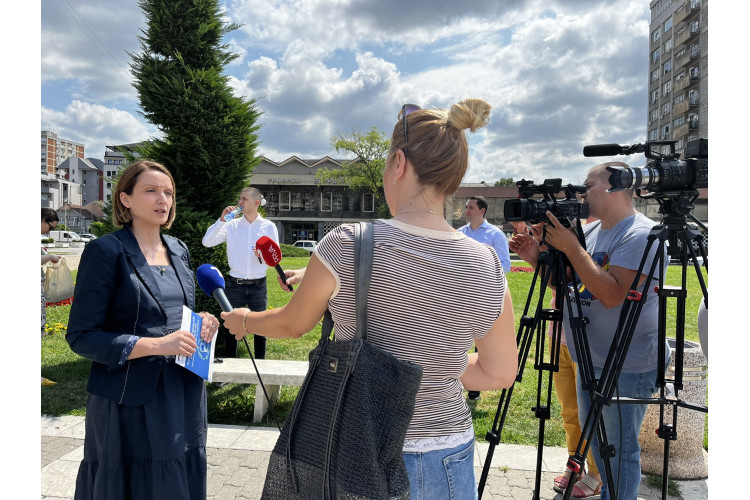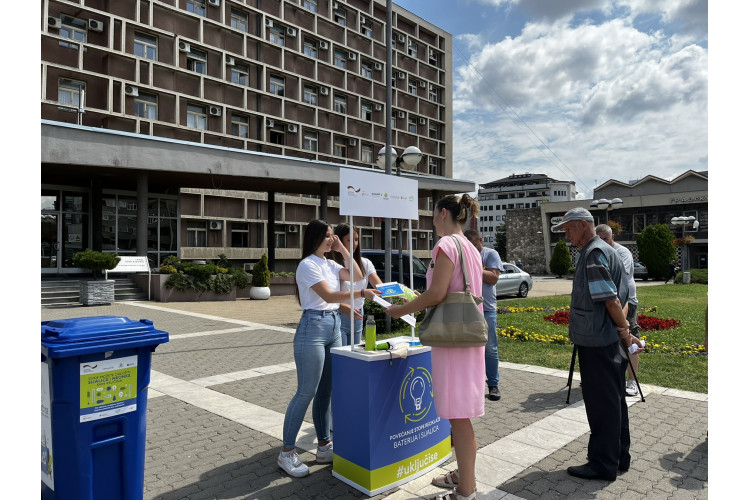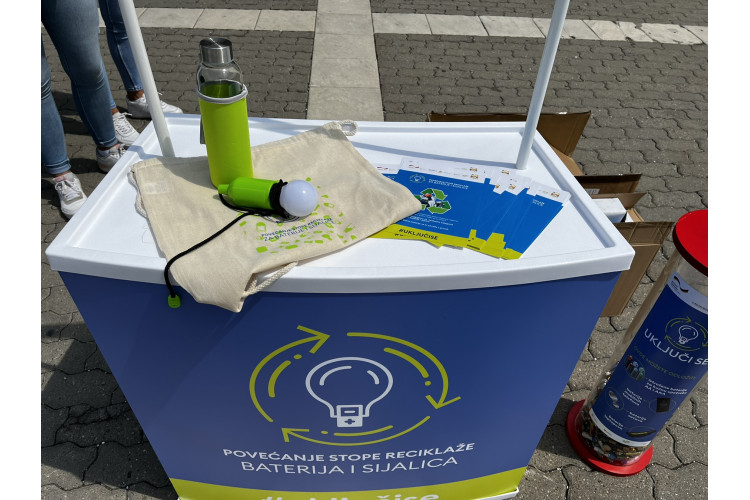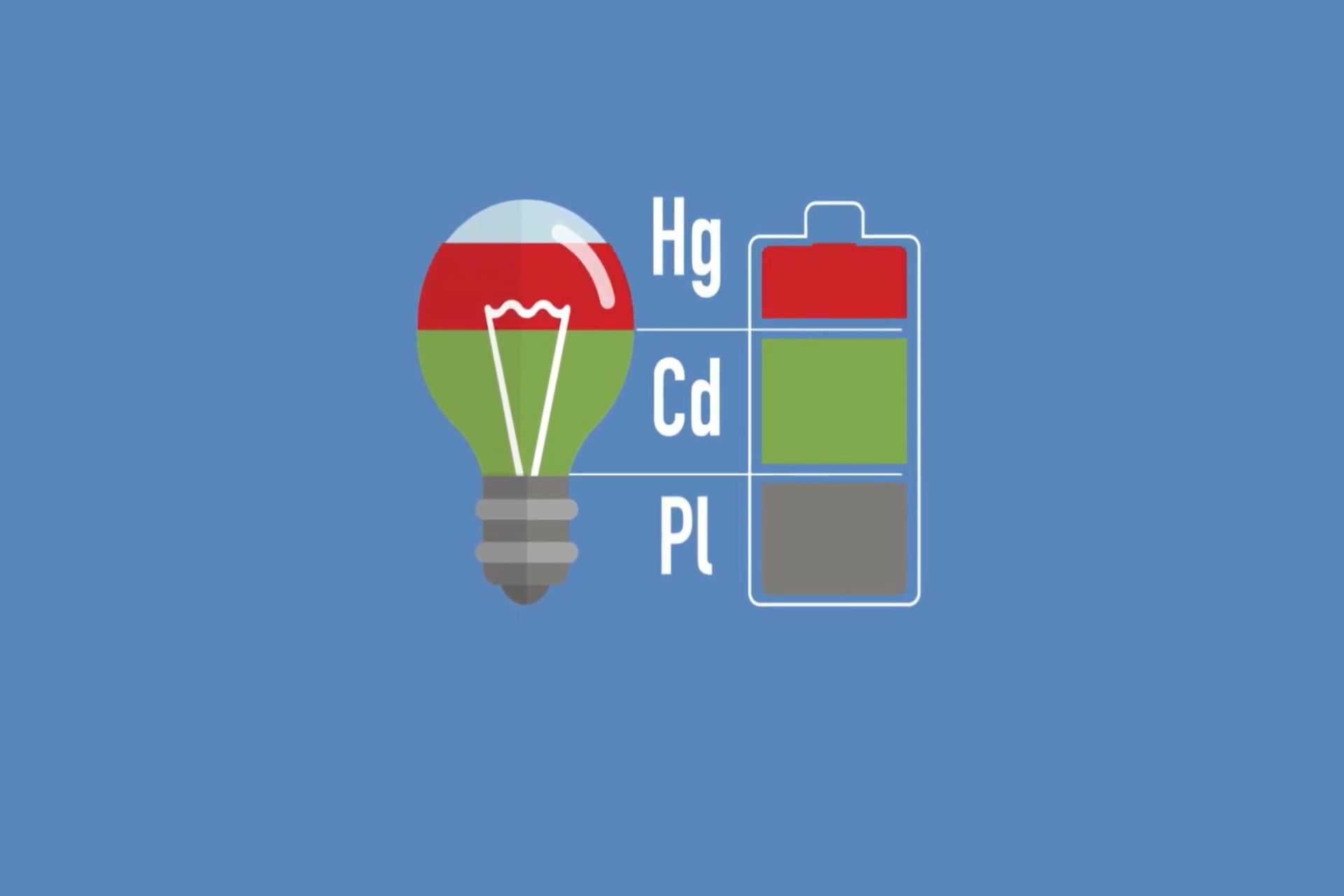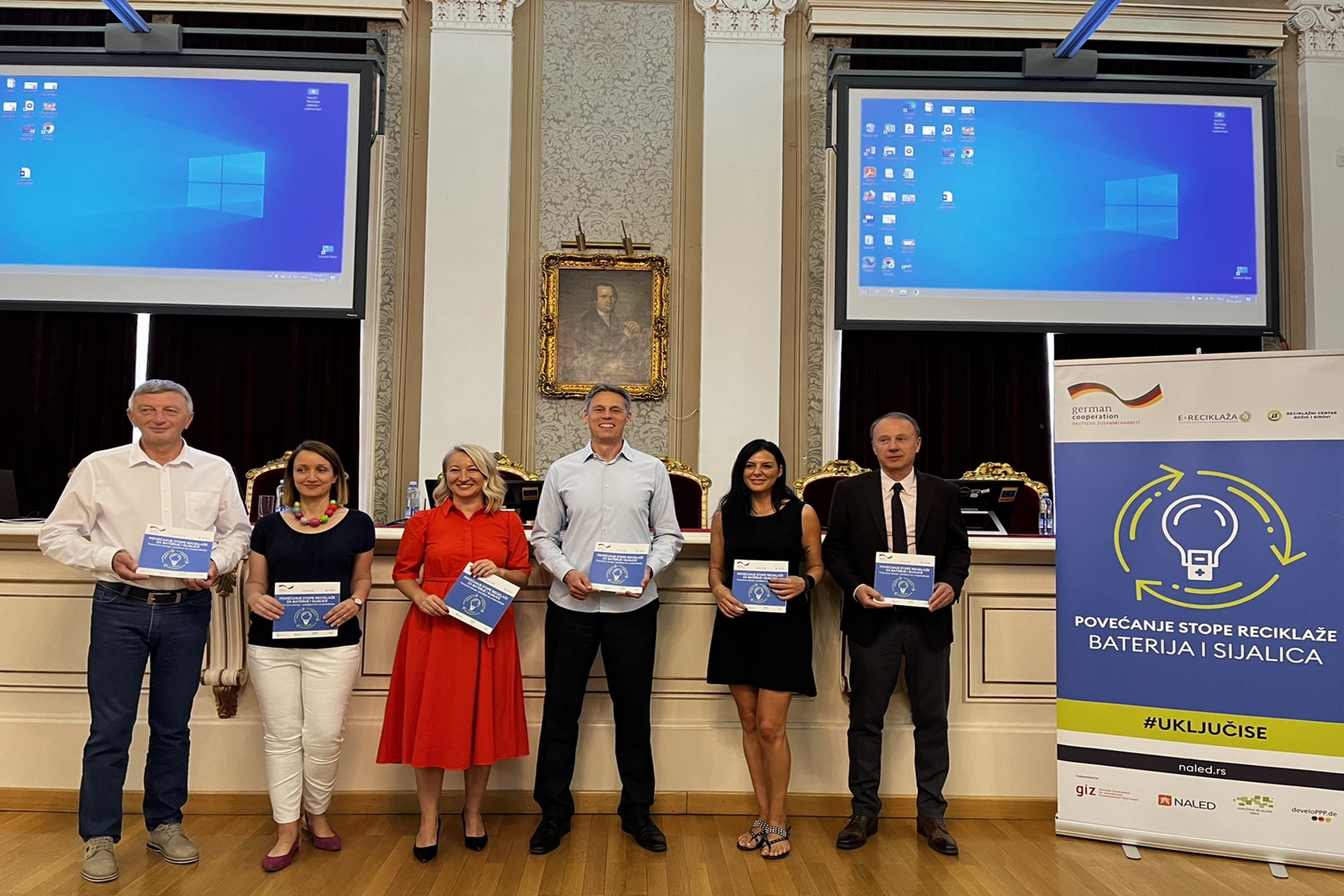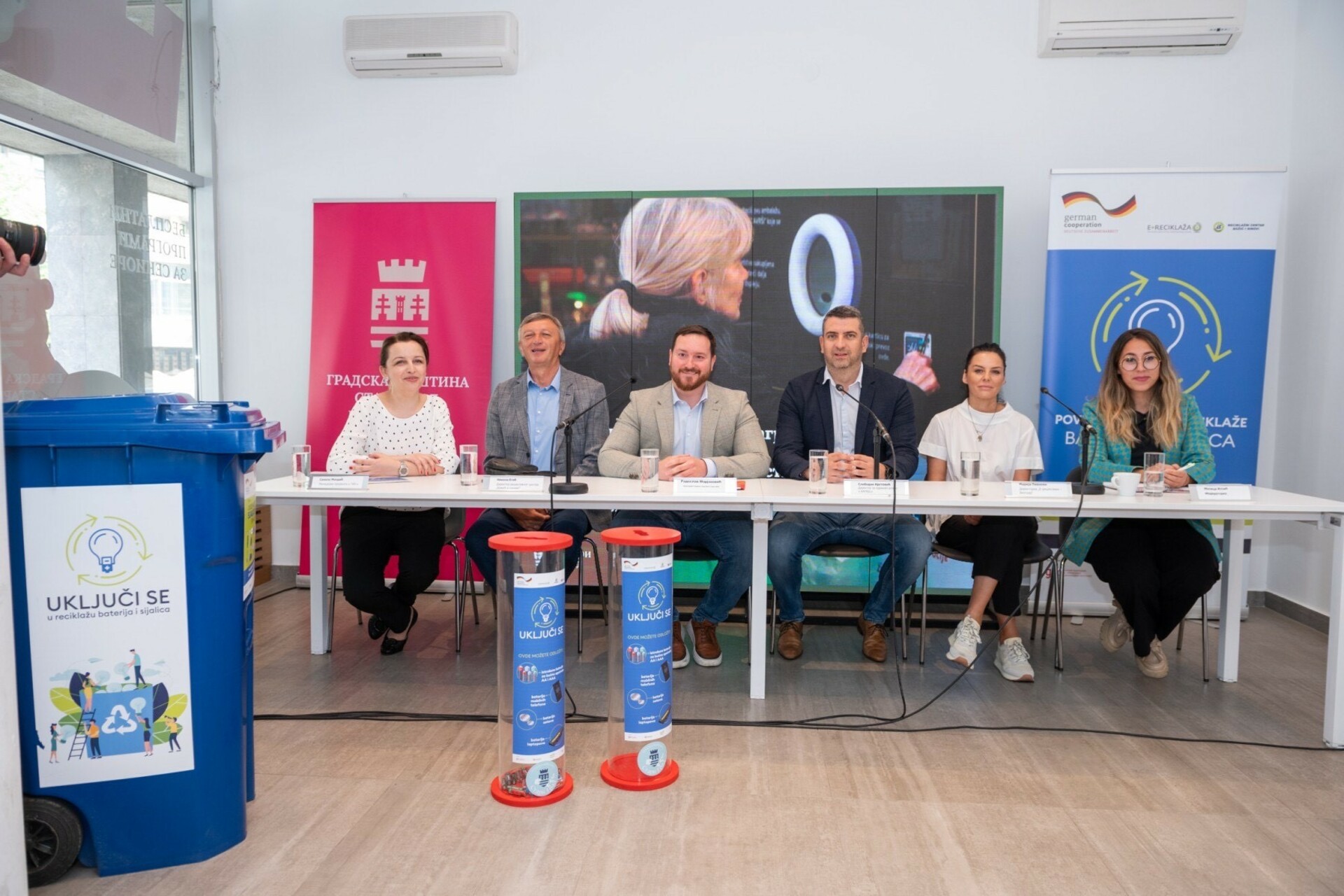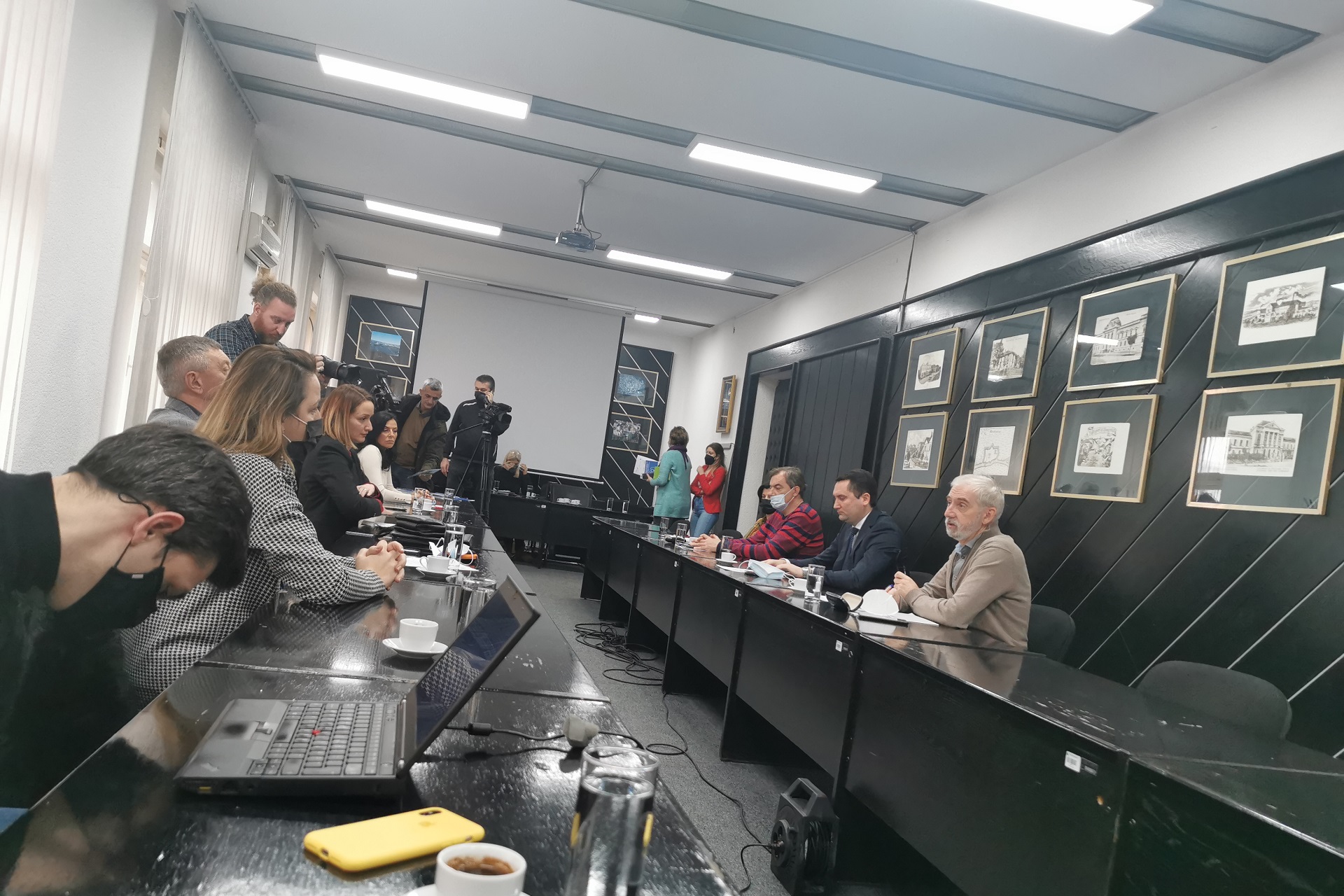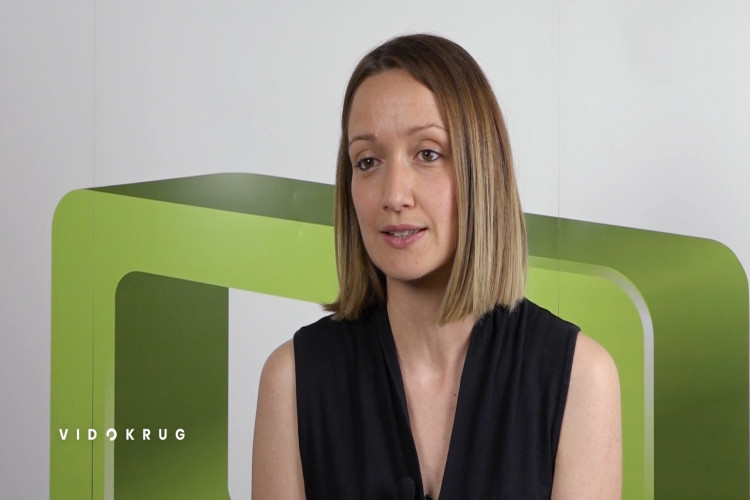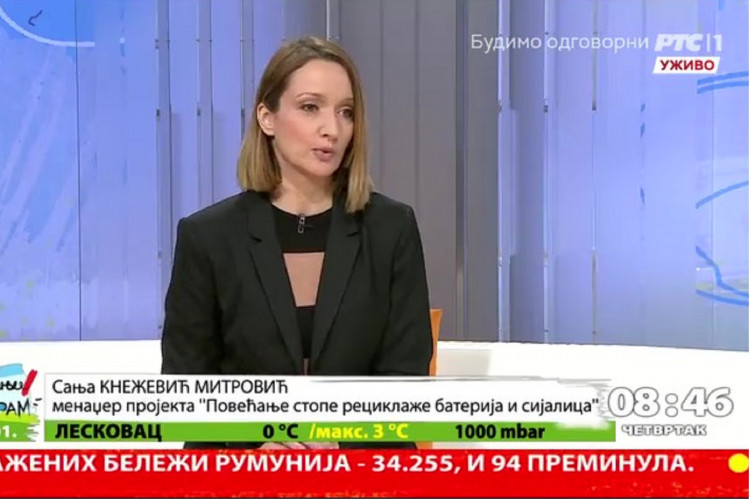Organized collection of hazardous waste in Kragujevac
A large campaign for collecting and recycling batteries and light bulbs was organized in Kragujevac within the project „Increasing the recycling rate for batteries and light bulbs”, implemented by NALED and GIZ with private partners. With symbolic prizes, the citizens could present the empty batteries and light bulbs and safely throw the dangerous waste from their households.
"The goal of this campaign is to raise awareness among our citizens and younger generations and show the importance of properly disposing of this waste. Batteries are considered dangerous waste and they should not be thrown away with regular garbage. This is also a proper manner to take care and create a healthier environment, and proper disposal of toxic waste is one in a series of procedures. Within the project „Increasing the recycling rate of batteries and light bulbs’’ we are implementing with NALED and German Development Cooperation – GIZ, late last year in Kragujevac we set up bins for safe disposal of this type of waste at seven locations - in City hall, Tax administration, Public utility company Kragujevac, charging stations at the Self-governors home, Airport, Brewery, Stanovo, at PUC „Water management and sewage“ Kragujevac,", said Stefan Nikezić, member of City council for environment protection and improvement, inviting all citizens to bring their waste when coming to pay the monthly bills and to throw them into designated bins.
The citizens could read materials with promotional and creative content, about the importance of recycling batteries and light bulbs and their negative impact if disposed together with communal waste.
Even though there are 50 million batteries and up to 2,000 tons of light bulbs used per year, Serbia still doesn't practice organized collection of this type of waste. For this reason, the pilot project was first launched in Kragujevac, and then in Municipality of Stari Grad and the University in Belgrade, to present how the collection system could function in practice. Also, another project goal is to increase the recycling rate by 20% in these areas.
"If such waste is found in nature or at a landfill, it emmits lead, cadmium and mercury that enter soil and water, and consequently into our food chain, and if such materials get lit up, they enter the air we breathe. To maintain the environment and our health, it is important to dispose of them properly, and we can achieve that if we ensure the infrastructure for their disposal, which is what NALED and GIZ together with private partners are trying to achieve with this action." says Sanja Knežević Mitrović, Policy Manager in NALED.
She reminded that the City of Kragujevac is also engaged in a project for recycling glass packaging, concluding that citizens first need to have the conditions for proper disposal and separation, and then receive information why this is important, as they go hand in hand to give full effect.

